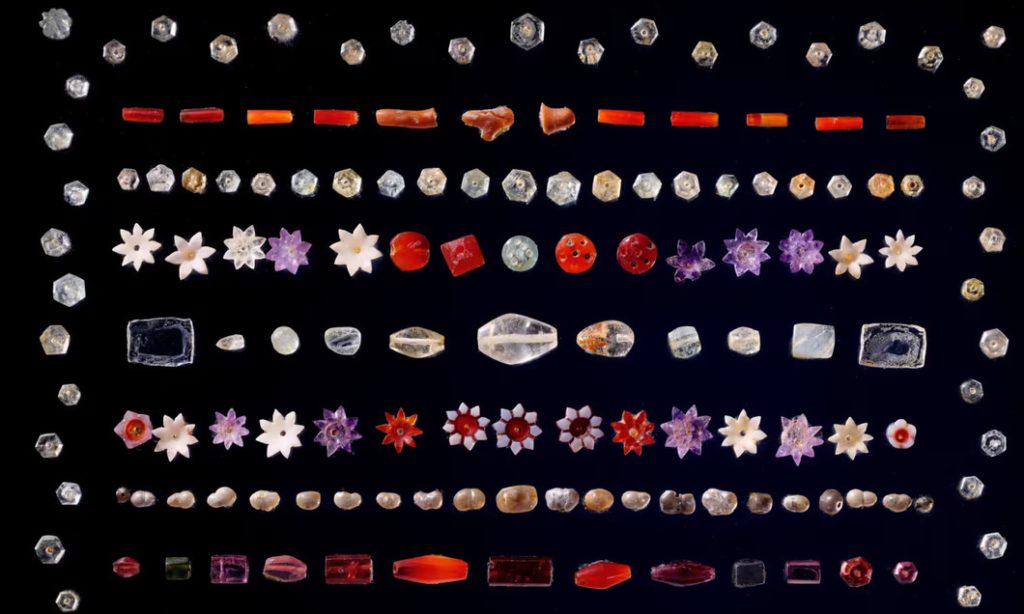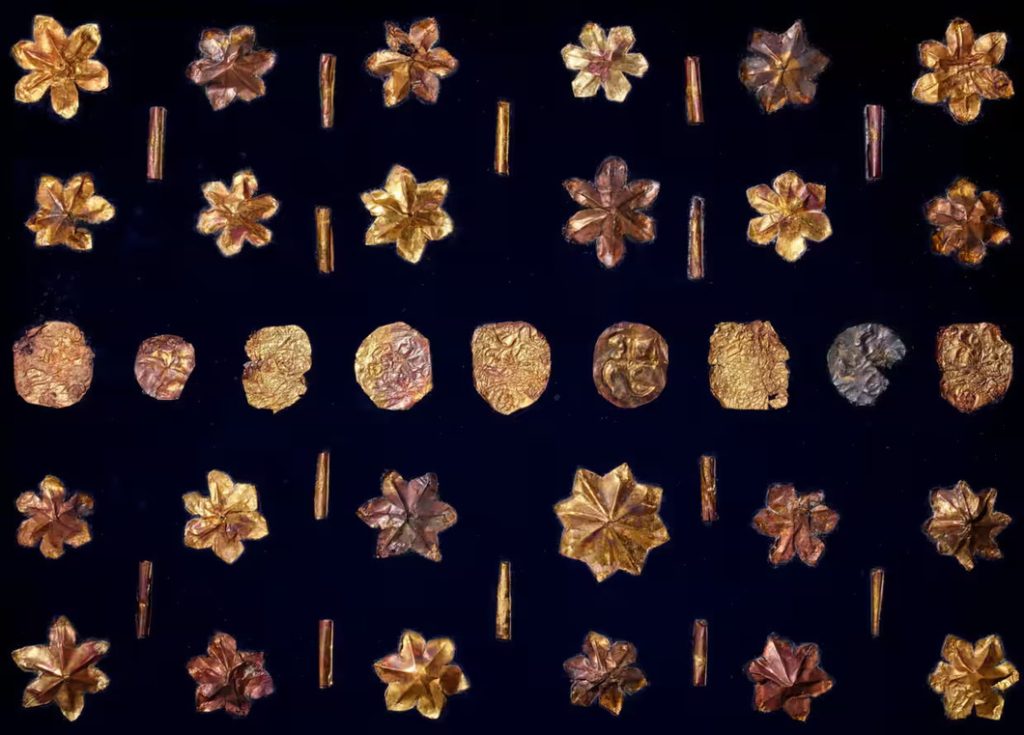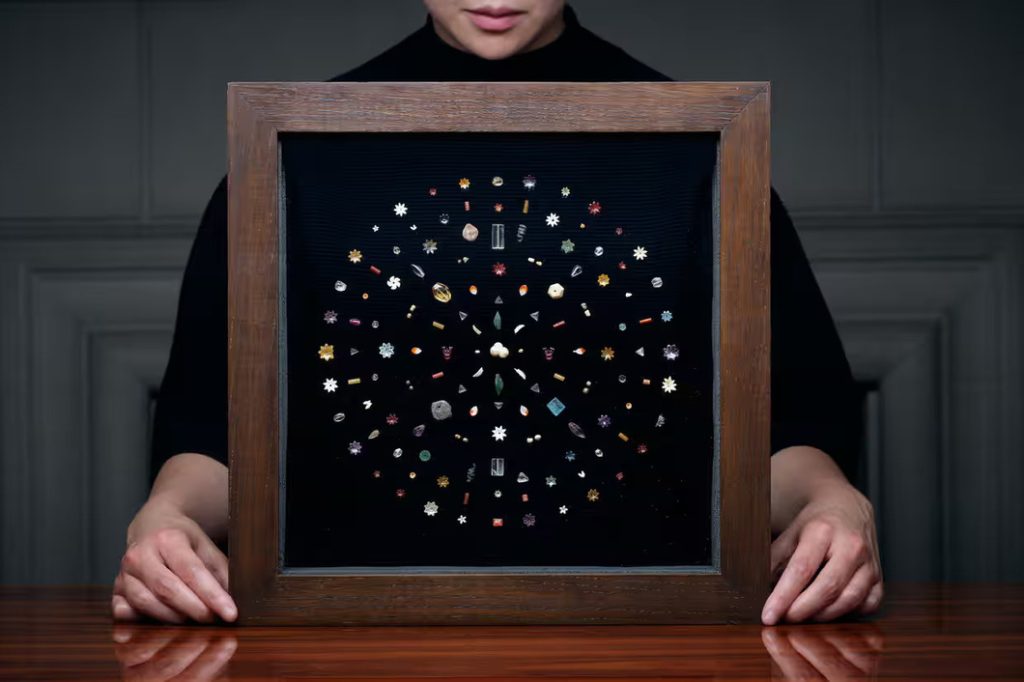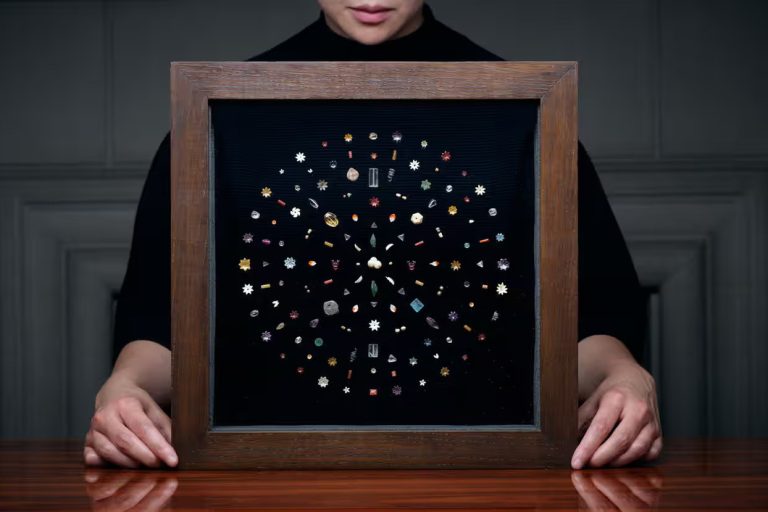India Demands Halt to ‘Unethical’ Auction of Piprahwa Relics Linked to Buddha
The Indian government has taken formal legal action to stop what it described as an “unethical” auction of ancient jewel relics believed to be associated with the remains of the Buddha, arguing they should be revered as part of his sacred body.
India’s Ministry of Culture stated that the sale of the Piprahwa gems in Hong Kong this week “contravenes both domestic and international legislation, as well as UN cultural heritage conventions.” It called for the immediate return of the relics to India for their protection and spiritual significance.
Legal notice was served to Sotheby’s Hong Kong and to Chris Peppé, one of the three descendants of British colonialist William Claxton Peppé, who uncovered the relics in 1898 while excavating a site on his estate in northern India. The relics are now being put up for sale by the heirs.

The auction, set for 7 May, has drawn criticism from academics and Buddhist leaders, with the artifacts expected to fetch approximately HK$100 million (£9.7 million).
In a statement published on Instagram, the Ministry asserted that Chris Peppé—a television director and film editor based in Los Angeles—has no rightful claim to authorize the sale. It further accused Sotheby’s of abetting “colonial-era exploitation” by proceeding with the auction.
Calling for the event to be halted, the ministry argued the relics represent “an inalienable component of India’s and the Buddhist world’s spiritual and cultural legacy.”

India’s government also demanded a public apology from Sotheby’s and Peppé, and requested full transparency regarding the provenance of the relics, including disclosure of any other items in the possession of the Peppé family or transferred elsewhere.
Should these demands not be met, the ministry said it would initiate legal proceedings in both Indian and Hong Kong jurisdictions, as well as with international organizations, citing violations of heritage protection laws.
Additionally, a public awareness campaign would be launched to expose Sotheby’s role in what the ministry described as “furthering colonial injustices” through the unethical sale of sacred objects.
The auctioned collection includes gemstones such as garnets, pearls, coral, amethysts, gold, and rock crystals, many fashioned into beads and ornaments, while others remain unworked.
These relics were originally entombed in a stupa—an ancient Buddhist structure for burial—at Piprahwa in today’s Uttar Pradesh, around 240–200 BCE. They were interred alongside ashes believed to be from the cremation of the Buddha, who died around 480 BCE.
Under the colonial Indian Treasure Trove Act of 1878, the British government claimed the discovery, gifting the ashes to King Chulalongkorn of Siam. Most of the 1,800 recovered gems were deposited in the Indian Museum in Kolkata, while Peppé was allowed to keep around 20%, deemed as “duplicates.”
Addressing the issue of rightful ownership, the ministry emphasized that in Buddhist tradition, relics housed in stupas are considered “sacred grave offerings” that are spiritually indivisible from the remains themselves and cannot be sold or treated as artifacts.
The ministry added that the heirs, who refer to themselves as caretakers, lack the moral or legal right to dispose of relics that form “a unique legacy of human civilization,” stressing that true custodianship entails preservation and reverence, not commercialization.
The auction, it said, “disrespects the faith of over half a billion Buddhists” and breaches ethical and religious norms.

Chris Peppé, who wrote an article for Sotheby’s describing his family’s stewardship of the collection, has been approached for comment. He previously told The Guardian that the jewels were placed with the Buddha’s ashes during their reburial, over two centuries after his death. “I’ve not encountered any Buddhists claiming the gems themselves are bodily remains,” he said.
Defending the family’s legal rights, he noted, “As far as we know, ownership has never been formally contested.”
Sotheby’s has also been contacted for comment. It previously told The Guardian that it had conducted all necessary due diligence regarding the items’ legal status and provenance.
India’s Ministry of Culture reported via Instagram that Sotheby’s has acknowledged receipt of the legal notice and assured that the issue is receiving “full attention.”

